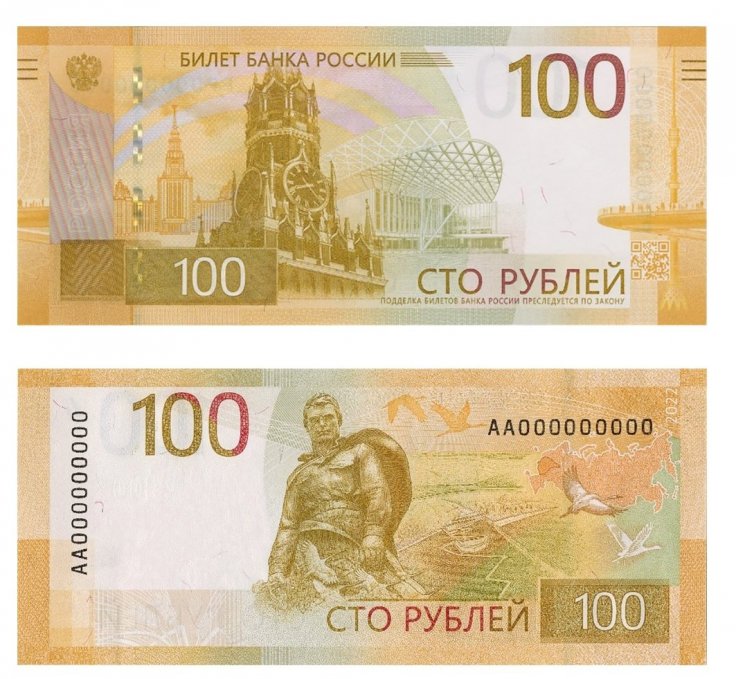Sanctions and the withdrawal of the Western companies from Russia created new challenges for the Central Bank in the country as the newly-introduced 'patriotic' 100 ruble banknote is impossible to receive from ATMs and cash registers in Russia. The challenge emerged as the Western companies which programmed the machines left the country due to the war.
Authorities are requesting time for more than half a year for the availability of the banknote as machines require reprogramming to dispense them. The new 100 ruble note comes with a drawing of a WWII memorial to Soviet soldiers.

Cash Registers Are 100% Imported
The Association of Russian Banks has underlined that due to the departure of suppliers it's almost impossible to update the software of ATMs and bank relation machines.
The ADB warned the Central Bank about this problem back in the spring. In particular, the association noted that more than 60% of ATMs are NCR and Diebold Nixdorf, and cash registers are 100% imported. In this regard, ADB asked to postpone the introduction of new banknotes into circulation for six months, reported the Kommersant business daily.
Introduction of New Banknotes Into Circulation Postponed
The new 100 ruble banknote, worth roughly £1.50 cannot be introduced into circulation and it doesn't seem to be possible for a few more months. The development shows that Western sanctions are actually hampering Russia badly.
A source in the payment market told Kommersant that "taking into account the geopolitical situation, it is difficult to imagine that developments for the Russian market will be a priority." More likely, in his opinion, is the scenario when some vendors refuse to support new banknotes at all, that is, their use in devices will be impossible.
ADB in its letter stated that "With the departure of suppliers, any updates to the software of validators in the recycling / cash acceptance modules of ATMs, as well as cash registers, terminals, became impossible, which leads to the inability to add / change templates for banknotes of both new denominations and a new sample."
Read more









